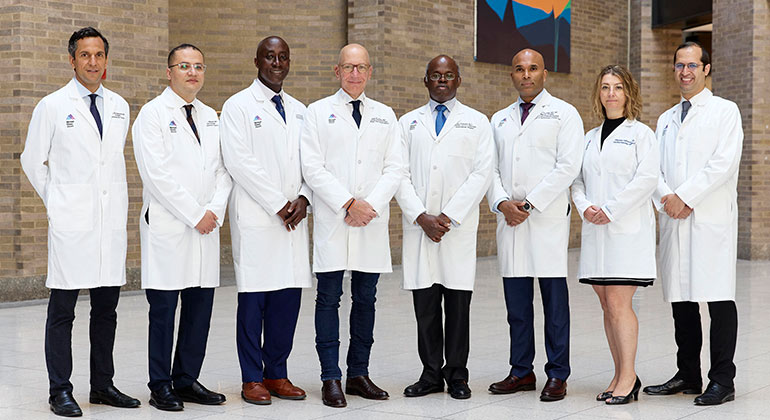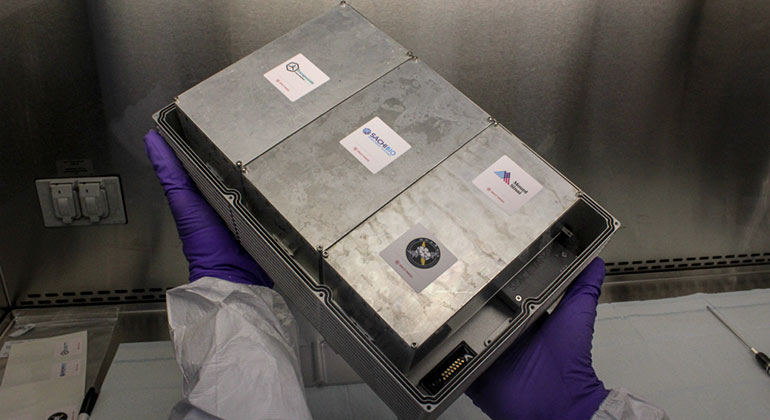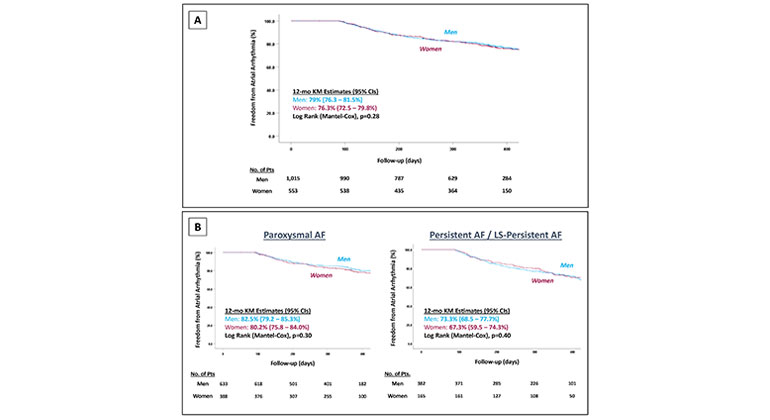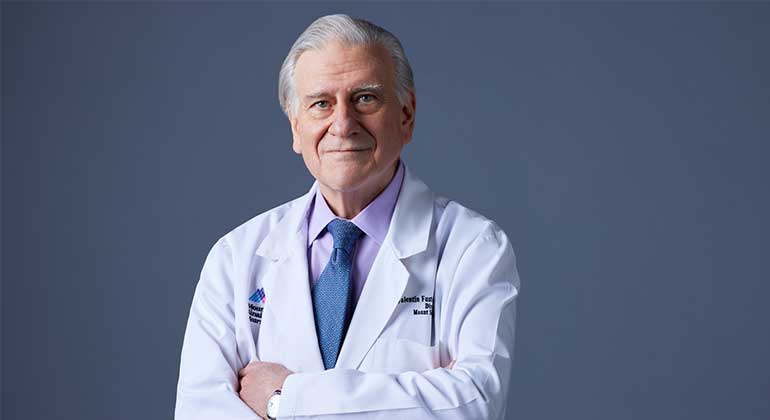How to Stay Warm and Heart Healthy During This Year's Super Bowl
Advice from cardiovascular experts at The Mount Sinai Hospital for football fans of New York/New Jersey’s Super Bowl XLVIII on Sunday, Feb. 2.
On Sunday, Feb. 2, Super Bowl XLVIII, the first outdoor, cold weather NFL championship in 40 years, will kick-off right here in the New York/New Jersey region at MetLife Stadium. The Super Bowl is one of the world's most anticipated and watched annual sporting events.
Should you be a local or a visiting football fan of the New York/New Jersey area with a ticket to the big game, or if you plan to watch it on television with family and friends, here are some healthy tips from leading experts at The Mount Sinai Hospital to keep top of mind when enjoying this year's Super Bowl festivities.
Going to the Game? Dress Warm
Extended exposure to frigid, outdoor cold temperatures can be hazardous to your health if you do not dress appropriately. Vascular medicine experts Peter Faries, MD, Chief of the Division of Vascular Surgery, and Rami Tadros, MD, Assistant Professor of Vascular Surgery in the Department of Surgery at The Mount Sinai Hospital, urge all Super Bowl fans this year to take the following precautions seriously to maintain their body's core temperature above 95 degrees Fahrenheit (35 degrees Celsius) to prevent the potential for dangerous hypothermia and frostbite:
- Remember to dress in layers. Wear thermal clothing, ideally thermals made out of water-wicking and breathable material to maintain your body's temperature
- Hands, feet, and head should be covered at all times. This allows your blood to stay warm which helps your body's core remain warm.
- Make sure to wear gloves, warm socks, waterproof boots, and a hat.
- Keep moving your muscles regularly during the game to generate heat.
- In addition, try using hand warmer products to stay even warmer.
- Limit your alcohol intake. Alcohol may make your skin flushed and temporarily make you feel warmer short-term, but actually alcohol can interrupt your body's ability to maintain its core temperature.
- Beware if your fingers or toes start to feel painful from extended cold weather exposure or start to turn purple in color. These are early warming signs of possible frostbite. Seek warmer shelter indoors from the cold and rub your skin to increase blood flow to the affected areas. If your skin color isn't restored seek medical attention as soon as possible.
Having a Super Bowl Party? Eat Heart Healthy
The Super Bowl is a big game day to enjoy with friends and family in person or together on television, but it doesn't mean you can't enjoy the game with healthier food choices. Mary Ann McLaughlin, MD, Medical Director of the Cardiac Health Program at The Mount Sinai Hospital, recommends that we all remember to make heart healthy choices every day including during Super Bowl fun. To help you continue to maintain a healthy cholesterol, blood pressure, and ideal weight level Dr. McLaughlin recommends abstaining from the traditional high-fat and high-sodium tailgate or football game watching foods by preparing the following options for you and your guests:
- Instead of chicken wings, make skinless chicken cutlets with a low-fat, low-sodium hot sauce.
- Instead of beef chili, try a vegetarian or turkey based chili recipe low in fat, and with low-fat cheese.
- Skip fried potato chips, and choose healthier baked potato chips.
- Instead of a high-fat dip, choose a fresh yogurt based dip using fresh garlic and low-sodium seasonings.
- Avoid soda, and choose to drink water or other low-calorie and low-sodium beverages.
- Try to limit excess intake of alcoholic beverages. The American Heart Association recommends no more than one drink per day for women, and no more than two for men to remain heart healthy.
About the Mount Sinai Health System
Mount Sinai Health System is one of the largest academic medical systems in the New York metro area, with more than 43,000 employees working across eight hospitals, over 400 outpatient practices, nearly 300 labs, a school of nursing, and a leading school of medicine and graduate education. Mount Sinai advances health for all people, everywhere, by taking on the most complex health care challenges of our time — discovering and applying new scientific learning and knowledge; developing safer, more effective treatments; educating the next generation of medical leaders and innovators; and supporting local communities by delivering high-quality care to all who need it.
Through the integration of its hospitals, labs, and schools, Mount Sinai offers comprehensive health care solutions from birth through geriatrics, leveraging innovative approaches such as artificial intelligence and informatics while keeping patients’ medical and emotional needs at the center of all treatment. The Health System includes approximately 7,300 primary and specialty care physicians; 13 joint-venture outpatient surgery centers throughout the five boroughs of New York City, Westchester, Long Island, and Florida; and more than 30 affiliated community health centers. We are consistently ranked by U.S. News & World Report's Best Hospitals, receiving high "Honor Roll" status, and are highly ranked: No. 1 in Geriatrics and top 20 in Cardiology/Heart Surgery, Diabetes/Endocrinology, Gastroenterology/GI Surgery, Neurology/Neurosurgery, Orthopedics, Pulmonology/Lung Surgery, Rehabilitation, and Urology. New York Eye and Ear Infirmary of Mount Sinai is ranked No. 12 in Ophthalmology. U.S. News & World Report’s “Best Children’s Hospitals” ranks Mount Sinai Kravis Children's Hospital among the country’s best in several pediatric specialties.
For more information, visit https://www.mountsinai.org or find Mount Sinai on Facebook, Twitter and YouTube.

Inter-Atrial Shunts May Benefit Some Heart Failure Patients While Harming Others
Apr 06, 2024 View All Press Releases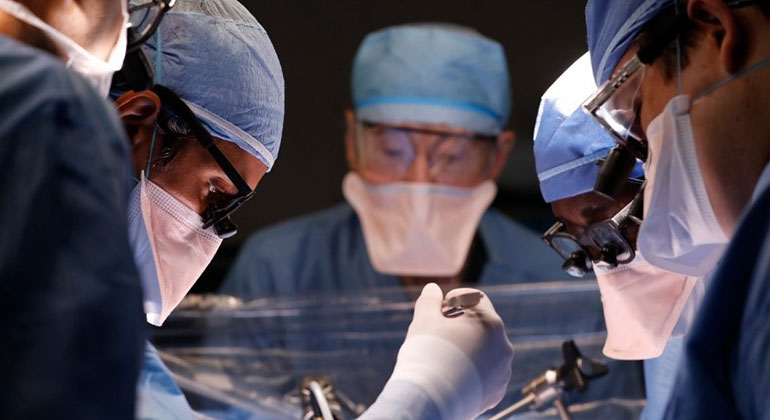
Ismail El-Hamamsy, MD, PhD, Named President of the Heart Valve Society
Feb 22, 2024 View All Press Releases

